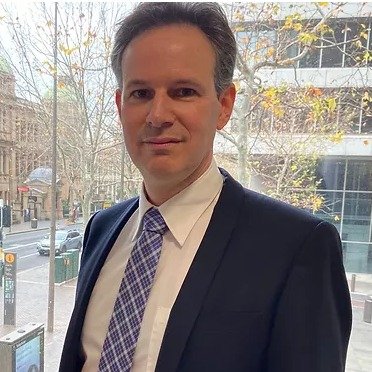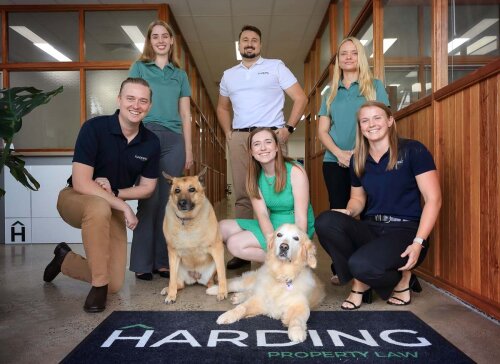Best Elder Abuse Law Lawyers in Sydney
Share your needs with us, get contacted by law firms.
Free. Takes 2 min.
List of the best lawyers in Sydney, Australia
About Elder Abuse Law in Sydney, Australia
Elder abuse law in Sydney, Australia, focuses on protecting older individuals from harmful acts, which can range from physical harm to psychological and financial abuse. The Australian government, alongside state jurisdictions like New South Wales (NSW), has established measures to protect older citizens and ensure their wellbeing. These laws are designed to both prevent abuse and offer remedies for individuals who have been victimized. In Sydney, local authorities work collaboratively with national initiatives to enforce these protections.
Why You May Need a Lawyer
Seeking legal advice from an elder abuse lawyer in Sydney could be crucial in several scenarios. These include situations where an elderly person is being neglected by their caregiver, when there is evidence of financial mismanagement or exploitation by someone in a position of trust, physical or emotional abuse, or when an older person’s rights are being unduly restricted or ignored. Legal professionals can help victims or their family members navigate the complex legal and social systems, seek restraining orders, or file for compensations.
Local Laws Overview
Elder abuse in Sydney falls under several broader legislative frameworks. The NSW Crimes Act can be invoked for criminal behavior against older persons, such as assault or theft. The Powers of Attorney Act 2003 and the Guardianship Act 1987 are crucial for addressing cases of financial abuse or unauthorized decision-making. Civil penalties may also be pursued under these acts. Furthermore, changes to the law aim to improve the reporting and management of elder abuse cases across NSW. These laws ensure that legal protection is in place, reflecting the social commitment to the dignity and respect of the elderly community.
Frequently Asked Questions
What is considered elder abuse?
Elder abuse includes physical, emotional, psychological, or financial harm done to older individuals by someone in a position of trust. It can also involve neglect and exploitation.
How do I recognize signs of elder abuse?
Signs can vary but may include unexplained injuries, sudden changes in financial situation, withdrawal from normal activities, poor hygiene, or changes in mood or behavior.
What should I do if I suspect elder abuse?
If you suspect elder abuse, it is important to report it to the police or a local authoritative body. You may also consider consulting with a legal professional for further advice.
What legal protections are available in Sydney for victims of elder abuse?
Protection orders, compensation claims, and criminal charges are some legal measures available to protect victims. Legal mechanisms from both state and federal levels may be applicable, depending on the case details.
Who can be held accountable for elder abuse?
Anyone in a position of trust who takes advantage of or harms an older person can be held accountable. This includes family members, caregivers, and professionals entrusted with their care.
Can elder abuse affect a person's legal rights or status?
Yes, elder abuse can lead to legal proceedings that may impact a victim's financial status, living situation, and personal freedoms. Legal intervention helps protect an individual's rights and restore any losses where feasible.
Is there a specific legal age when someone is considered elderly in Australia?
Generally, individuals aged 65 and older are considered elderly in the context of elder abuse, although specific circumstances may vary.
How can financial abuse be detected and proved?
Financial abuse can be detected through irregularities in bank statements, sudden changes in wills or property ownership, and other sudden financial decisions without clear justification. Proving it may require thorough records and legal investigation.
Are there emergency services for immediate elder abuse intervention?
Yes, local authorities and organizations such as the Elder Abuse Helpline can provide immediate advice and intervention. Law enforcement can also be contacted for immediate threats or harm.
How can legal representation help in elder abuse cases?
A lawyer can provide guidance on the best course of action, represent the victim in court, and work to achieve a resolution that safeguards the victim’s rights and wellbeing.
Additional Resources
Several organizations provide support and advice regarding elder abuse in Sydney, such as:
- The Elder Abuse Helpline: A confidential service offering information and support.
- Legal Aid NSW: Provides free legal consultation and representation in elder abuse matters.
- Seniors Rights Service: Offers legal advice and advocacy for older people.
- NSW Department of Communities and Justice: Provides resources and assistance for victims of elder abuse.
Next Steps
If you need legal assistance in matters of elder abuse, consider reaching out to a specialized elder abuse lawyer or one of the listed resources. Initiate contact by gathering all pertinent information about the case and preparing to discuss it with a legal professional. You may also wish to file a report with local authorities if the situation requires immediate intervention. Remember, taking swift action can lead to better outcomes and offer substantial protection to those affected by elder abuse.
Lawzana helps you find the best lawyers and law firms in Sydney through a curated and pre-screened list of qualified legal professionals. Our platform offers rankings and detailed profiles of attorneys and law firms, allowing you to compare based on practice areas, including Elder Abuse Law, experience, and client feedback.
Each profile includes a description of the firm's areas of practice, client reviews, team members and partners, year of establishment, spoken languages, office locations, contact information, social media presence, and any published articles or resources. Most firms on our platform speak English and are experienced in both local and international legal matters.
Get a quote from top-rated law firms in Sydney, Australia — quickly, securely, and without unnecessary hassle.
Disclaimer:
The information provided on this page is for general informational purposes only and does not constitute legal advice. While we strive to ensure the accuracy and relevance of the content, legal information may change over time, and interpretations of the law can vary. You should always consult with a qualified legal professional for advice specific to your situation.
We disclaim all liability for actions taken or not taken based on the content of this page. If you believe any information is incorrect or outdated, please contact us, and we will review and update it where appropriate.

















